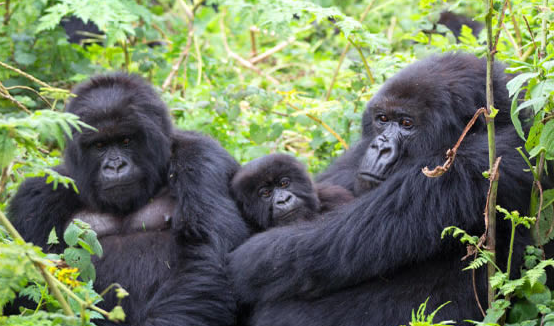How Do Gorillas Care for the Young?
Gorillas are not only fascinating creatures but also dedicated parents. Understanding how these gentle giants care for their young can provide us with insights into their social structures and the important role they play in the ecosystem. This article dives into the nurturing behaviors of gorillas, highlighting their close family bonds and effective parenting strategies.
The Role of Mothers in Gorilla Care
In gorilla societies, mothers are the primary caregivers. After a gestation period of about nine months, a mother typically gives birth to a single baby, as twins are rare. Gorilla mothers are incredibly attentive, often carrying their infants on their backs or in their arms. This close physical contact not only ensures the baby’s safety but also fosters an emotional bond. Mothers will nurse their young for several years, gradually introducing them to solid foods while teaching them essential survival skills like foraging and climbing.
The Importance of Family Units
Gorillas live in groups called troops, usually led by a dominant male known as a silverback. These family structures play a vital role in the nurturing of young gorillas. Silverbacks protect the group from threats and provide stability, allowing mothers to focus on raising their offspring. Other members of the troop, including older siblings and females, also participate in caregiving. This communal approach to parenting enables young gorillas to learn social behaviors and builds a supportive network that enhances their chances of survival in the wild.
Learning Through Play and Exploration
Play is a crucial aspect of a young gorilla’s development. Infants are naturally curious and playful, engaging in activities that help them build their physical and social skills. They learn to interact with their environment and develop problem-solving abilities during these playful moments. Mothers often encourage this exploration by providing safe spaces for their young to roam and experiment, which fosters independence while still ensuring safety. Observing interactions among young gorillas can offer valuable insights into their learning processes and social dynamics.
Conclusion
Gorillas exhibit remarkable parental care, demonstrating deep emotional bonds and communal support within their family units. Understanding how gorillas nurture their young not only enriches our knowledge of these incredible animals but also emphasizes the importance of conserving their habitats. If you’re intrigued by gorilla behavior and their life in the wild, consider visiting a local zoo or wildlife sanctuary, or explore further resources online to learn more about these magnificent creatures.

